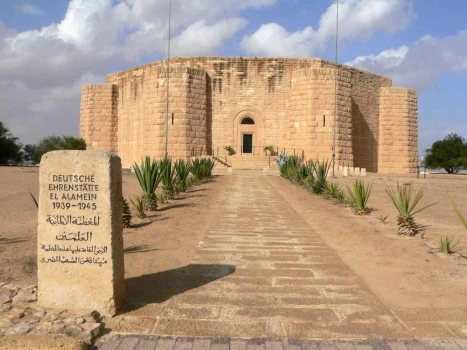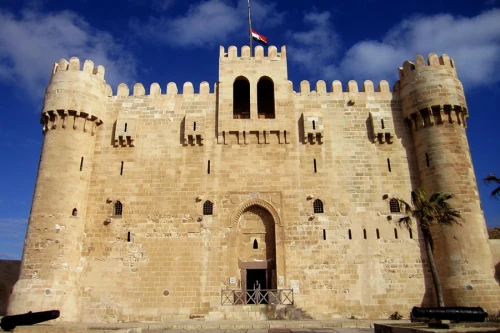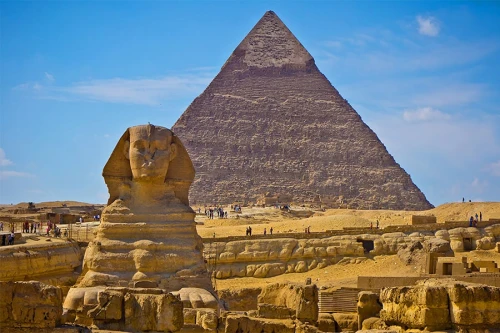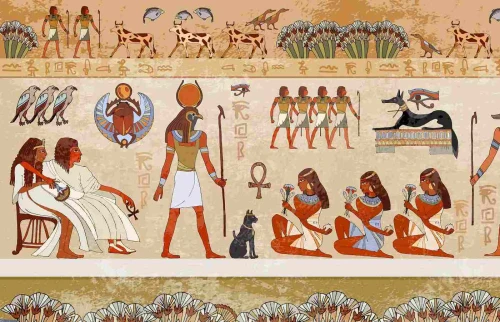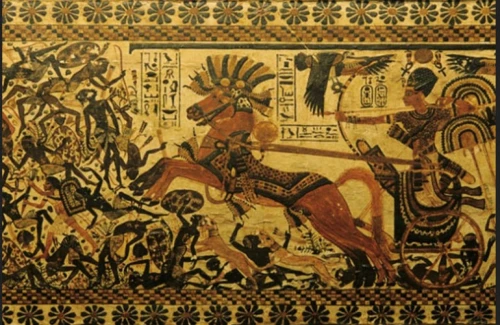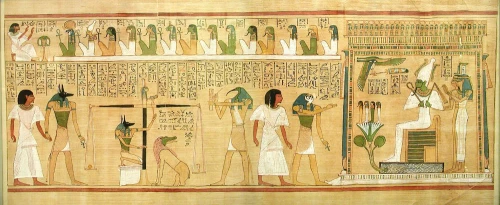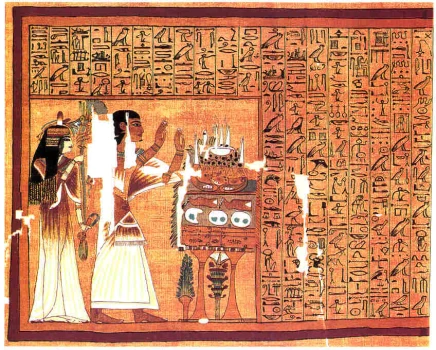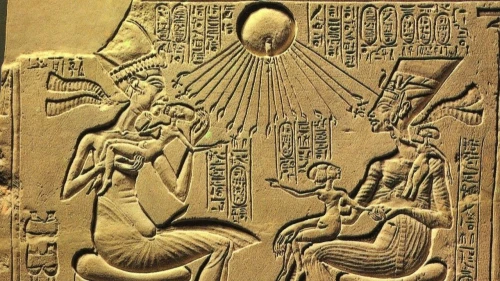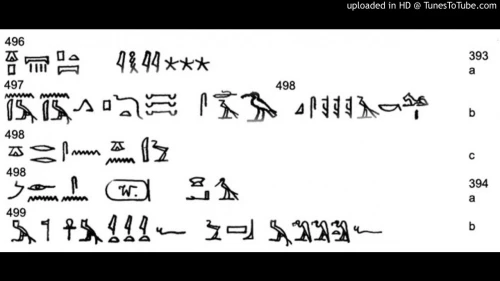
CANNIBAL HYMN A group of inscriptions inside the pyramid of the Fifth Dynasty king, U, (2375 - 2345 B.C). The PYRAMID. TEXTS suggest the king will have the power of the gods if he devours them. The so-called Cannibal Hymn gained its name in the nineteenth century when Egyptologists first translated the text and wrongly interpreted it as a sign of cannibalism among the ancient Egyptians. The text shows pharaoh Unas's concern for his safety in the afterlife. One way to attain protection was to steal the power of the gods. On the antechamber east wall of the pyramid, a long inscription states that the king feeds upon the gods to gain their power. One of the verses reads:
- Unas devours their magic and swallows their spirits.
- Their big ones are for his morning meal.
- Their medium ones are for his evening meal.
- Their small ones are for his night meal.
- Their old men and their old women are for his fuel.
The Great Ones in the north sky, light him fire For the kettles contents with the old ones thighs, For the sky-dweller serves Unas And the pots are scraped for him.
Thus Unas asserted his new power and was equal to the gods. Another portion of the text suggests he became so powerful that even the gods were afraid of him. It was a dramatic solution to the problem of the king's immortality and his continued well-being in the heavens.
Aside from the Cannibal Hymn, which most scholars agree was not to be taken literally, there is no evidence of cannibalism in ancient Egypt. It seems that JUVENAL, a Roman satirist in the first century, started a rumor that surfaced from time to time over the centuries. Juvenal hated the Egyptians; in fact, he detested anything, not Roman, and he wrote that the uncouth Egyptians with their strange religion thought it a sin to kill a cat or a ram.
 English
English
 Spain
Spain

